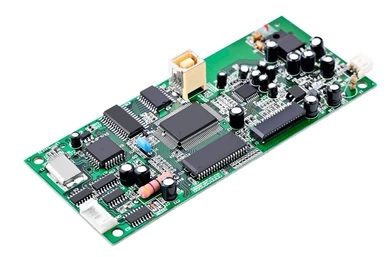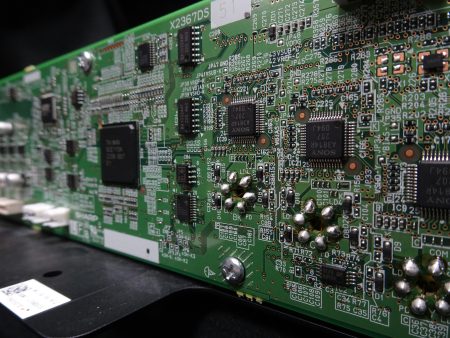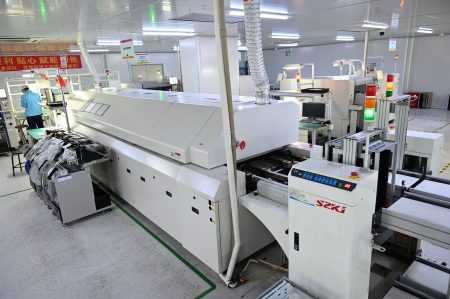- +86-755-23012705
- Building 3, Jinfeng Industrial Park, Fuyong Street, Baoan District, Shenzhen ,China
- [email protected]
As the world becomes increasingly reliant on electronic devices, the amount of electronic waste (e-waste) being generated continues to rise at an alarming rate. According to the Global E-waste Monitor, the world generated over 53 million metric tons of e-waste in 2019, a figure that is expected to grow every year. This trend is especially concerning for industries like the Printed Circuit Board Assembly (PCBA) sector, where electronic components and PCBs (printed circuit boards) are integral to production.
However, as awareness of environmental issues increases, the treatment and recycling of e-waste has emerged as a key focus for the electronics industry. In this blog, we will discuss the importance of e-waste recycling and how it can help the PCBA industry move toward greener, more sustainable production practices.
E-waste refers to discarded electrical or electronic devices, including everything from old computers and mobile phones to household appliances, televisions, and batteries. As electronic devices become outdated or non-functional, they are typically thrown away or discarded. E-waste contains a wide variety of materials, including precious metals like gold, silver, and copper, as well as hazardous substances like lead, mercury, and cadmium, which pose significant environmental and health risks if not properly managed.
E-waste is a major concern for the environment because of the large quantities of non-recyclable materials it generates, as well as the toxic chemicals that can leach into soil and water if not disposed of correctly. In fact, improper disposal of e-waste is one of the leading causes of environmental pollution in many countries. Therefore, it is critical that the industry adopt sustainable e-waste treatment and recycling methods to mitigate the impact on the planet.

The PCBA industry, which involves assembling electronic components onto printed circuit boards, plays a central role in the lifecycle of electronic devices. The boards used in PCBA are typically made of non-biodegradable materials, such as epoxy resins and fiberglass, and often contain heavy metals like lead, mercury, and cadmium, which can be harmful to the environment. As such, the proper management of e-waste is essential to reducing the environmental impact of the industry.
To make the PCBA industry more sustainable, a key focus must be placed on reducing e-waste through recycling and reusing materials from discarded electronics. By doing so, companies can help recover valuable resources, reduce landfill waste, and promote the development of greener production processes.
The first step in the recycling process is the collection and segregation of e-waste. Given that e-waste contains a mix of valuable and hazardous materials, it is important to separate the components carefully. This can be achieved through manual sorting or automated systems designed to identify and separate different materials. For example, metals, plastics, glass, and circuit boards need to be sorted separately to ensure they are processed correctly.
For the PCBA industry, this means efficiently extracting valuable metals such as gold, copper, and palladium from old circuit boards. These metals are crucial in the production of new PCBs and can be reused in future manufacturing processes.
Once e-waste has been sorted, mechanical processing techniques such as shredding, crushing, and grinding are often used to break down large components into smaller pieces. These smaller pieces are then subjected to chemical processes, such as solvent extraction, to separate the precious metals from the base materials.
For PCBA manufacturers, this means recovering valuable metals like copper and gold from discarded circuit boards, which can then be reintroduced into the supply chain. This reduces the need for mining new metals, which is a resource-intensive and environmentally damaging process.

Advances in recycling technologies are making it easier to extract valuable materials from e-waste while reducing environmental impact. For example, hydrometallurgical and biological leaching methods are being explored to recover metals from circuit boards more efficiently and with less environmental harm. These technologies use aqueous solutions or biological processes to dissolve and extract precious metals, significantly reducing the need for harsh chemicals traditionally used in mining.
In the context of the PCBA industry, such methods can be adopted to recover metals from discarded PCBs, providing a more sustainable alternative to conventional recycling processes. This can help reduce the environmental footprint of PCB production by ensuring that valuable materials are reused and recycled rather than being disposed of.
An important part of the solution lies in designing electronic devices and PCBs with recycling in mind. This involves selecting materials that are easier to recycle and minimizing the use of hazardous substances. For example, the RoHS (Restriction of Hazardous Substances) directive, which is now widely adopted by the electronics industry, restricts the use of certain toxic substances like lead, mercury, and cadmium in electronic devices.
For PCBA manufacturers, this means designing circuit boards with recyclable materials, such as lead-free solder and eco-friendly resins, that reduce environmental impact at the end of the product’s life. This can also include making PCBs easier to disassemble so that individual components can be removed and reused or recycled more efficiently.
A circular economy focuses on maximizing the value of resources by promoting reuse, repair, and recycling. In the context of PCBA and e-waste, this means that instead of discarding old devices and components, they are returned to the supply chain to be refurbished or recycled. The circular economy model reduces waste, conserves resources, and lowers carbon emissions by ensuring that materials are reused rather than thrown away.
PCBA manufacturers can adopt circular economy principles by establishing take-back programs for old products, recycling used components, and using recycled materials in the production of new boards. This approach not only helps reduce e-waste but also supports the broader goal of sustainability in the electronics industry.
E-waste recycling contributes directly to green production in the PCBA industry in several key ways:
Resource Efficiency: By recovering valuable metals and materials from e-waste, the PCBA industry can reduce its reliance on virgin raw materials. This decreases the environmental impact of mining and resource extraction, which are energy-intensive and polluting processes.
Waste Reduction: Recycling e-waste helps divert harmful materials like lead, mercury, and cadmium from landfills, reducing soil and water contamination. By using recycled components and materials, PCBA manufacturers can significantly cut down on their environmental footprint.
Energy Savings: The recycling of e-waste typically uses less energy compared to the production of new materials, making it a more energy-efficient option. This helps reduce greenhouse gas emissions and supports the industry’s efforts to lower its carbon footprint.
Sustainability: As consumer demand for greener products increases, companies that embrace e-waste recycling and sustainable production practices are better positioned to meet regulatory requirements and attract eco-conscious customers.

As the volume of electronic waste grows, the PCBA industry has an important role to play in driving sustainability. Through effective e-waste treatment and recycling practices, the industry can help reduce its environmental impact, recover valuable materials, and contribute to a more circular and sustainable economy. By adopting green production practices and supporting innovative recycling technologies, the PCBA industry can not only meet the challenges of modern electronics but also help create a more sustainable future for generations to come.
Discover a World of Possibilities with XPCB Limited
At XPCB Limited, we’re here to help you explore new horizons. Our advanced PCB manufacturing, rapid prototyping, and turnkey PCBA solutions make it easy for you to turn your ideas into reality. Trust us to deliver excellence and reliability every step of the way. Join us and experience the power of innovation with XPCB Limited by your side.






XPCB Limited is a premium PCB & PCBA manufacturer based in China.
We specialize in multilayer flexible circuits, rigid-flex PCB, HDI PCB, and Rogers PCB.
Quick-turn PCB prototyping is our specialty. Demanding project is our advantage.
Tel : +86-136-3163-3671
Fax : +86-755-2301 2705
Email : [email protected]
© 2024 - XPCB Limited All Right Reserve
